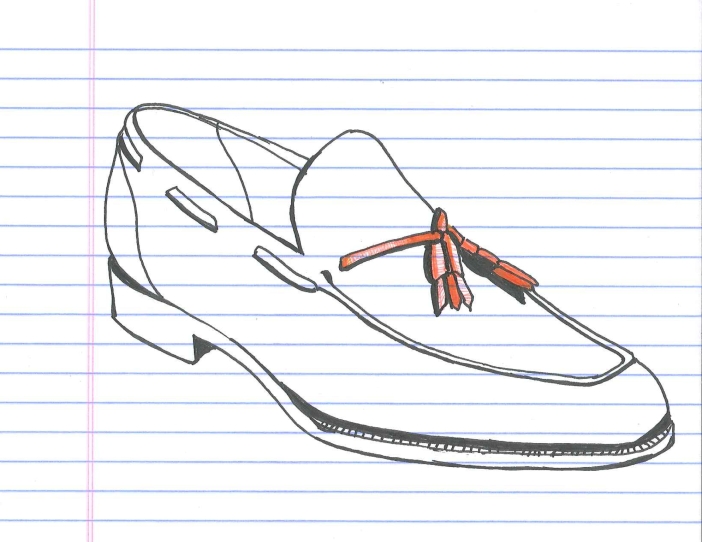Last post, we studied the origin of finale, an appropriate word for this time of year. Come summer, many students finish their final finals. They don their caps. They don their gowns. They endure long addresses. They walk the stage. They receive their diploma (holder). They graduate. In some traditions, students toss the tassels on their mortarboards from the right side to left at the ceremony’s close, signaling their newly graduated status. What of the etymology of tassel, which–unless you are frequently drawing drapes, cloaking yourself in capes, or slipping on some loafers–gets much of its attention during graduation season?

Tassel
The Oxford English Dictionary (OED) first cites tassel back to around 1330, naming a “clasp” that fastens together the two sides of a cloak. By the 1400s, tassel was referring to a “pendent ornament,” a tuft of cords bunched and suspended at a knot or knob.
Many etymologists unfasten tassel, if you will, to the Old French tassel, also a “clasp” for a mantle or cloak, which is from the medieval Latin tasselus. This tasselus, in turn, could come from the classical Latin taxillus, a “small die” used in gambling, from talus, a “knucklebone,” “anklebone,” “ankle,” or “heel.” (This talus also equipped English with talon, which once named a “heel” or “hoof” in addition to its prevailing sense of a “claw” today.)
Now, the graduate’s parents may think that that English major is real gamble, but what do tassels have to do with bones? As Skeat concludes, a tassel was originally “a sort of button made by a piece of squared bone and afterwards of other materials,” evolving from the clasp to the ornament we know today. But not all etymologists are convinced.
Ernest Weekley posits that the Old French tassel is a diminutive form of tas, rendering tassel a “little heap.” He points us to the Middle English tass, a “heap” or “bunch,” which may aptly describe the graduate’s student loan debt. The OED offers tossel, an 18th-century variant that may connect the word to toss, evoking that other graduation tradition of throwing the cap in the air. Toss has been quite the active and versatile word since its recorded debut in the early 1500s, but it, too, is of unknown origin. The OED adds that “the only cognate word appears to be the Norwegian and Swedish dialect tossa,” glossed as “to spread, strew.”
In my opinion, the best etymologies are like diplomas: always earned, never handed out. To all the graduates out there, flip your tassels–and congratulations.
That is one of the very best deals in net gambling so Constantly keep
an eye out for that.
LikeLiked by 1 person